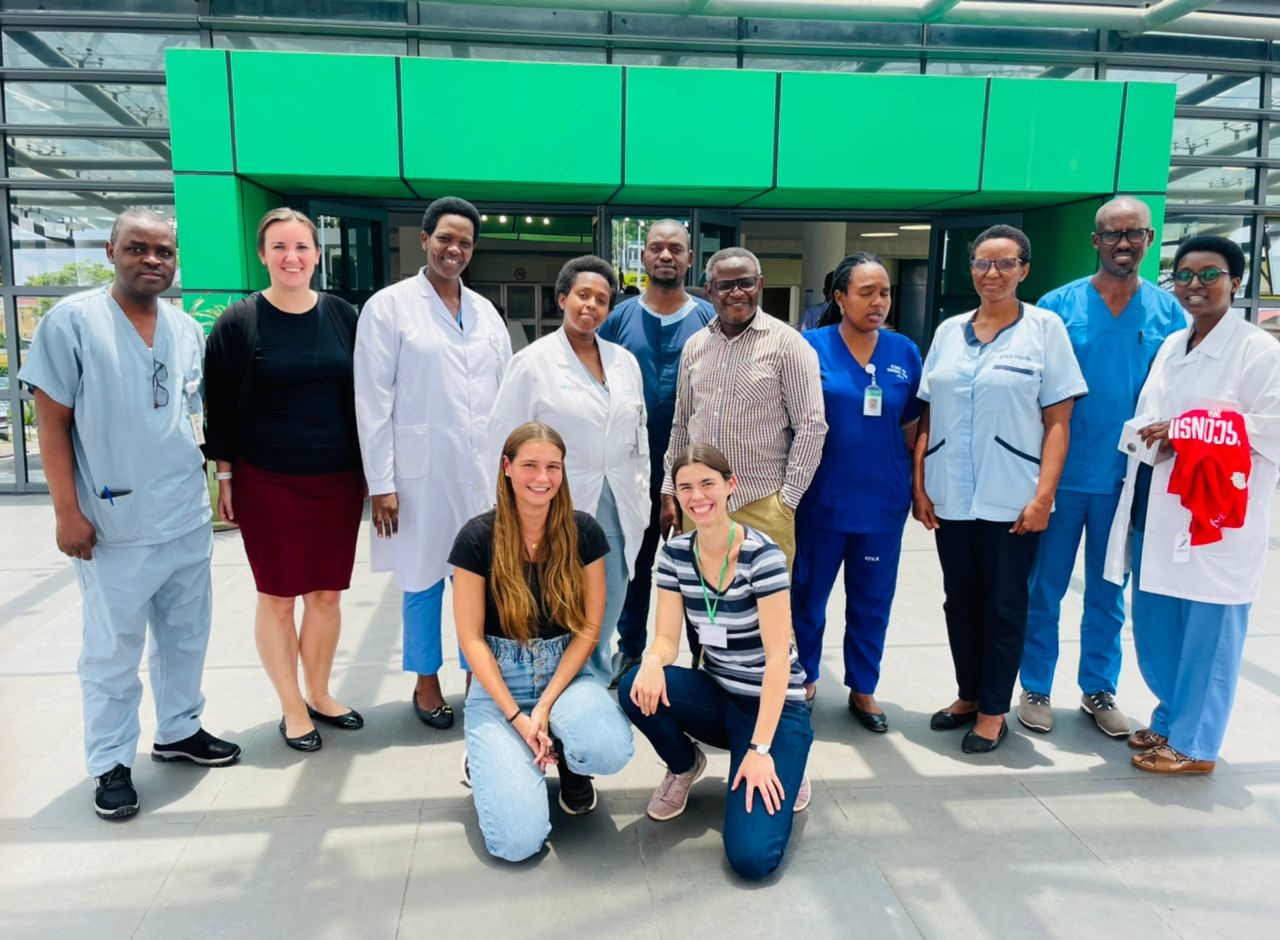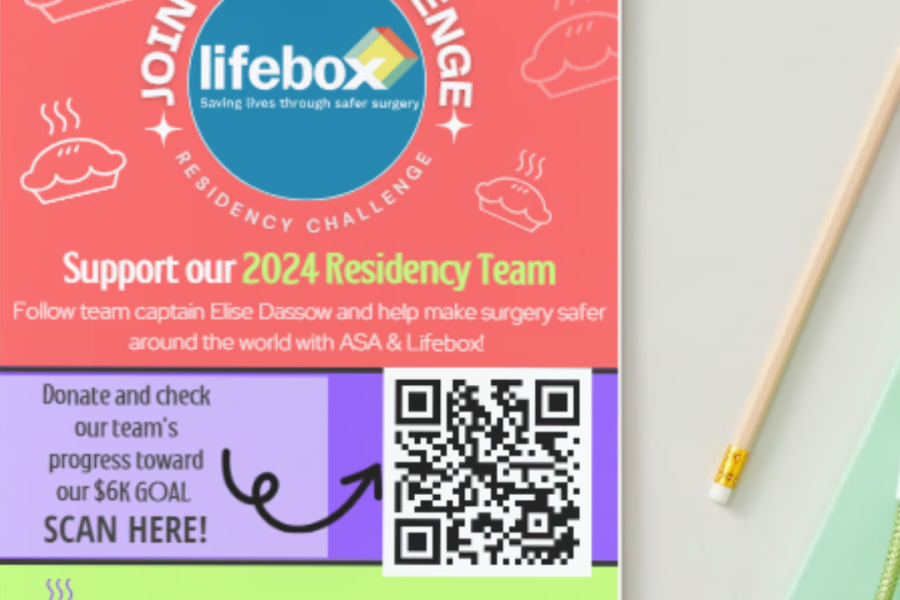Our vision is to sustainably improve access to safe anesthesia, pain management, and critical care in low and middle-income countries through service, education and training, and research.
The Global Anesthesia Programs of the Department of Anesthesiology seek to improve the lives of patients in low- and middle-income countries by improving access to safe anesthesia. Through partnerships with universities and non-governmental organizations, we accomplish this goal through service, education and training, and research.
This global initiative within the Department of Anesthesiology at the University of Wisconsin School of Medicine and Public Health is taking an innovative approach to enhance perioperative care in low- and middle-income countries (LMICs) through education, research, and clinical delivery of care. We will serve using innovative and global solutions that will result in equitable, improved, and sustainable perioperative outcomes in targeted LMICs.
Three Key Outcomes:
- Education: To implement programs both locally and internationally that result in positive shifts in the care of surgical patients in LMICs.
- Research: To conduct innovative research in global perioperative care.
- Clinical Care: To participate in and train physicians to responsibly engage in the safe perioperative care of patients in LMICs, both at home and abroad.
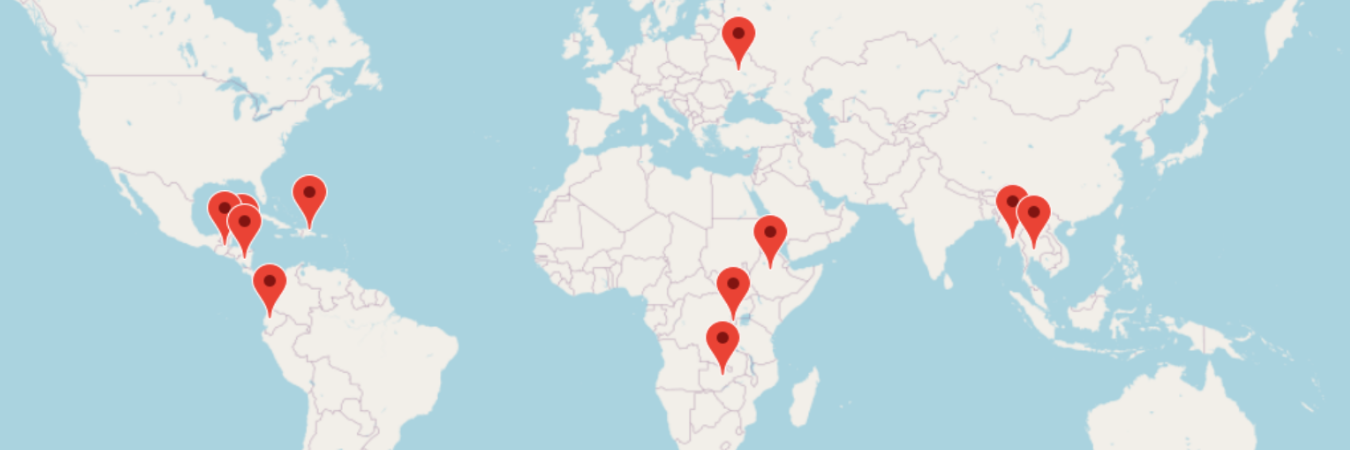
Current Locations
Rwanda and Zambia
Past Locations
Nicaragua, Thailand, Myanmar, Honduras, Dominican Republic, Ecuador, Guatemala
The Global Academic Anesthesia Consortium
The Global Academic Anesthesia Consortium (GAAC) is a collaborative network of academic departments supporting a global program committed to building anesthesia infrastructure by supporting education and training, research development, and quality initiatives in low- and middle-income countries (LMICs).
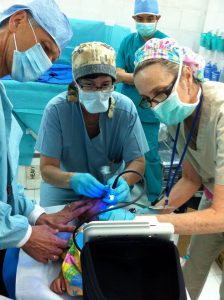 The University of Wisconsin School of Medicine and Public Health Department of Anesthesiology (UWSMPH DOA), in partnership with 9 academic departments, launched the Global Academic Anesthesia Consortium (GAAC) in 2022. Our first bilateral relationship was established with the University of Zambia in Lusaka, Zambia. Our goal is to support quality anesthesia training in Zambia, helping to increase the number of qualified anesthesiologists for Zambia, while also supporting the development of research infrastructure and quality initiatives.
The University of Wisconsin School of Medicine and Public Health Department of Anesthesiology (UWSMPH DOA), in partnership with 9 academic departments, launched the Global Academic Anesthesia Consortium (GAAC) in 2022. Our first bilateral relationship was established with the University of Zambia in Lusaka, Zambia. Our goal is to support quality anesthesia training in Zambia, helping to increase the number of qualified anesthesiologists for Zambia, while also supporting the development of research infrastructure and quality initiatives.
The GAAC partner programs support a shared vision to support education and training tailored to the specific needs of the Zambian residents. Beyond the GAAC commitment to education and training, the consortium is also committed to supporting quality and research projects of local interest, both for the residents and the faculty. The GAAC teams working in Zambia include faculty, residents, and fellows; these teams also provide education for the U.S. residents on the realities of anesthesia in LIMCs and offer the opportunity for the residents to give lectures and provide hands-on teaching for the local anesthesiology residents.
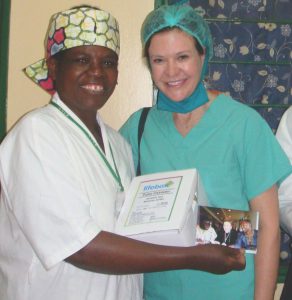 The GAAC teams provide 2-4 weeks of coverage for the Zambian anesthesia curriculum. The GAAC teams share many fixed expenses in Lusaka, and each partner is responsible for team travel and any related visa or health expenses.
The GAAC teams provide 2-4 weeks of coverage for the Zambian anesthesia curriculum. The GAAC teams share many fixed expenses in Lusaka, and each partner is responsible for team travel and any related visa or health expenses.
We are actively recruiting other academic anesthesia programs to participate in the Global Academic Anesthesia Consortium. For information on joining the GAAC, please reach out to Margaret Williams. Future expansion of the GAAC in LMICs is anticipated.
This is an accordion element with a series of buttons that open and close related content panels.
GAAC: FAQ
What is GAAC?
- The Global Academic Anesthesia Consortium is a group of US academic departments of anesthesiology committed to providing education, training, and research in low- and middle-income countries. Further, this group is committed to providing quality global health experiences to interested residents and fellows within our training programs. The GAAC will accomplish these goals through sustained partnership with a university in a low- or middle-income country
Where will the GAAC focus?
- The GAAC will initially focus on Lusaka, Zambia, at the University of Zambia. Other programs may be considered in the future.
Who will manage the logistics and legal requirements associated with the GAAC?
- The University of Wisconsin-Madison, Department of Anesthesiology, will provide administrative, legal, and logistical support for the GAAC.
What is required for participation?
- Participating universities will be required to sign the GAAC MOU, commit to an annual time frame (2-4 weeks), and provide the annual support as listed in the budget. Further, it is recommended that all participating programs agree to the guidelines for safe global health practices for their residents, fellows, and faculty.
What is the annual budget?
- The annual budget will cover all annual administrative fees, including an administrative coordinator, legal fees, maintenance of the MOUs, local housing with staff, electronics, Wi-Fi, phone service, general household goods, security, and transportation.
What is not included?
- Travel, visas, vaccinations, and food.
Who may participate?
- Faculty anesthesiologists, anesthesia residents in good standing, and anesthesia fellows in good standing. It is up to the participating organization as to the number of each during the weeks they are covering.
Is resident supervision required on-site?
- For residents to receive credit for work abroad, supervision is required on-site.
What are the ABA requirements for resident participation?
- Residents have the option to complete training away from their ACGME-accredited anesthesiology programs. This option is not available during the last three months of residents’ CA-3 year or until after they complete at least one year of clinical anesthesia training, unless the training will be in another ACGME-accredited anesthesiology program.
- Current Residency Review Committee requirements limit training in institutions not integrated with the resident’s ACGME-accredited program to a maximum of 12 months throughout the CA 1-3 years.
- The request for approval must include a chronological description of the rotations, information about resident supervision, and assurances that residents will follow the limits on training away from their ACGME-accredited programs. Further, residents must remain enrolled in their programs while training away from the ACGME-accredited programs, and their programs must report the training on the CCC report filed for the period involved.
- Programs may receive a one-time blanket approval for a sustained rotation abroad.
What are the housing arrangements?
- Following the site visit in March/April 2022, specifics regarding housing will be available. The goal is to rent a large house, close to the University of Zambia for ease of transportation to and from the hospital.
What are the arrangements for transportation to and from the hospital?
- Transportation will be provided for all transfers (airport and daily hospital). More details will be available following the March/April 2022 site visit.
What security measures are in place?
- A security analysis will be performed during the March/April 2022 site visit. It is likely that a security service will be hired to ensure the safety of the teams and the rental house during all visits.
Any other questions can be directed to:
Kelly McQueen, MD, MPH, FASA
Ralph M Waters Distinguished Chair in Anesthesiology
Chair and Professor
Department of Anesthesiology
University of Wisconsin School of Medicine and Public Health, Madison, WI
Kelly.mcqueen@wisc.edu
Deborah Rusy MD, MBA, FASA
Professor of Anesthesiology
Department of Anesthesiology
University of Wisconsin School of Medicine and Public Health, Madison, WI
darusy@wisc.edu
GAAC: Preparing to Travel
Global News
2024 Resident Lifebox Challenge
Our 2024 team captain, Dr. Elise Dassow, and Chief Residents organized a successful campaign to help us reach our donation goal of $6,000 for Lifebox! The team competed with other residency programs across the nation to fundraise for Lifebox and support their mission to make surgery safer around the world!
In the News
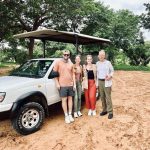
Residents travel to Zambia, South Africa to participate in global health program
In January 2024, CA3 residents Michael Gyorfi, Erica Janz, and Sylvia Rakke joined faculty Joel Johnson as a part of the Global Academic Anesthesia Consortium (GAAC) program at the University Teaching Hospital in Lusaka, Zambia, …
March 21, 2024
Deborah Rusy attends the 18th Annual World Congress of Anaesthesiologists in Singapore
Deborah Rusy, MD, MBA, FASA, presented abstracts at the World Congress of Anaesthesiologists (WCA) in Singapore last week, March 3–7th. The Congress includes representation from over 130 countries. The next WCA will be held in …
March 13, 2024

